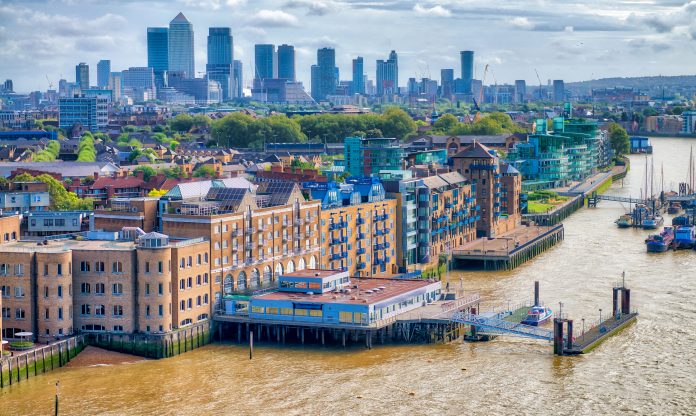Cllr Peter Box, Leader of Wakefield Council and Chair, Key Cities Group explains how Britain’s town and city centres face significant challenges in redefining their purpose for local residents, visitors and businesses
Following a decade of overall economic downturn, shifting consumer patterns and technological advancements. Britain’s town centres face significant challenges in redefining their purpose for local residents, visitors and businesses. Coupled with ongoing uncertainty around the impact of Brexit, our town and cities are now at a pivotal stage of their evolution.
As a group, Key Cities has a vital role to play in ensuring that the voices of Britain’s towns and cities are heard. We achieve this by developing the agenda and policy asks for governments on behalf of our members – a diverse range of 24 medium-sized cities across the UK.
This mission was central to our recent research report: ‘The Future of our City and Town Centres’. The report focuses on the challenges and opportunities faced by our mid-size cities and township. Partnership and collaboration are at the core of our strategy, and the report includes a blueprint with best practice examples of how we are responding to these challenges.
Whilst many of Britain’s larger cities have had a diverse mix of uses within their centres, many of the key cities developed to primarily serve local residents working in industry. Many of these industries have since reduced their scale or disappeared entirely in today’s service-driven landscape. The shift in this trend has left a chasm in many of Britain’s medium-sized cities, and they are left with no easily distinguishable assets.
This, alongside the fact that city and town centres across the UK are all impacted by the ever-changing retail, housing and leisure industries, means that we must develop innovative approaches that seek to use centres in a diverse way that delivers prosperity for local residents and businesses.
Innovation within the retail industry
The retail industry is one sector where economic and consumer-spending habits are having the greatest impact. Whilst retail spend in the UK grew by 4.7% to £366 billion in 2017, online-only sales rose by 15.9% during the period, compared with a disproportionate 2.3% for bricks and mortar sales, according to the latest ONS figures. With the prominence of online retailers continuing to grow, the threat to falling in-store sales is ever-present.
The industry must consider how advancements in technology and innovation can transform existing processes and improve the overall experience for the customer and increase productivity rates at the same time. This can take many forms, through exploring the use of apps and in-store Wi-Fi, mobile payments and blockchain technology within the supply and logistics industry.
However, the future success of our town and city centres extends beyond the retail industry. In compiling our Town Centres research, we published the findings of our survey aimed at key cities residents to ascertain what their perceptions and priorities for the future of town centres were.
Increasing connectivity
When asked about infrastructure, perhaps unsurprisingly, the majority of respondents cited initiatives with a digital dimension. Popular answers included electric vehicle charging points, improvements to mobile network coverage and signposting way findings – including via digital tools. In this regard, the task for our centres is to embrace digital transformation and emerging technologies by ensuring that the supporting infrastructure is in place.
Britain’s diverse housing landscape
The housing market across the UK continues to paint a diverse picture, which is especially true for Key Cities. Despite overall housing numbers across member cities increasing steadily over recent years, the majority of city centre housing falls at the extreme ends of a spectrum. Either accommodation becomes unaffordable due to high land values in centres or, the abundance of low-quality housing dictated by housing benefit decreases the incentives to improve housing standards. In responding to this parity, we must ensure that engagement between local authorities, planning organisations and central government occurs, with the objective of providing housing that meets the diverse needs of local residents and communities.
Creating places with purpose
Although our towns and cities face considerable challenges in their centres, it is not all doom and gloom. Collectively, we must remind ourselves that our centres primarily exist for people, through the provision of societal and economic benefits for all. For any response to be successful, we must ensure that the vision for our towns and cities is borne out of the needs of its custodians. We must also provide incentives for visitors to make a return visit, by providing them with a positive and enriching experience in our centres.
Through our combined expertise and template for town and city centres to follow, Key Cities are primed to support policymakers and local authorities to ensure that the appropriate funding and initiatives are in place to ensure that city and town centres evolve for the better.
Cllr Peter Box
Leader of Wakefield Council
Chair, Key Cities Group




![Europe’s housing crisis: A fundamental social right under pressure Run-down appartment building in southeast Europe set before a moody evening sky. High dynamic range photo. Please see my related collections... [url=search/lightbox/7431206][img]http://i161.photobucket.com/albums/t218/dave9296/Lightbox_Vetta.jpg[/img][/url]](https://www.openaccessgovernment.org/wp-content/uploads/2025/04/iStock-108309610-218x150.jpg)






